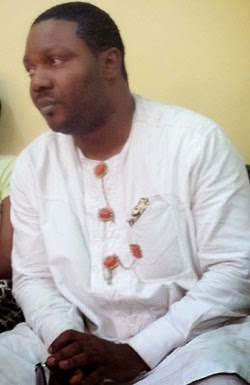News
Breaking the Nigerian “Culture of Silence” on Rape – Why the Alleged Prince Daniel Okereke Case is Unique
The rape allegations being made against Prince Daniel Okereke, brother of popular Nollywood actress, Stephanie Linus, is still a hot topic for many reasons.
In case you missed the story, here’s a brief overview:
The alleged rape victim, a 22-year-old University of Lagos (UNILAG) student met Okereke, 37, online. They became friends and eventually met in person on November 6th, 2014, Daily Post reports.
Arinola was reportedly ill when they met, and Okereke offered to take her to the pharmacy to get some drugs. Afterwards, they visited a fast food restaurant. According to Arinola, the understanding between them was that they would go to an outdoor venue where they could relax and enjoy their meal.
However, to her surprise, Okereke drove directly to his home in Mende, Maryland where he physically assaulted her and raped her severally, while his security guards tied her down.
She reported the case to “Area F” police station in Ikeja, however, the accused was released on bail that same day. Her family then reported the matter to Panti, and he was re-arrested.
According to reports, Okereke has confessed to raping Arinola.
Two of the foremost reasons why this case is different from many rape cases in Nigeria is because it breaks our “culture of silence” mentality, and it also illustrates that contrary to popular opinion, the “big men” are not always above the law.
Firstly, the alleged victim chose to report the case, which breaks the commonplace “culture of silence” mentality our society has when it comes to rape. In Nigerian society, the issue of rape is largely still seen as a taboo. In many instances, rape victims are reluctant to report their ordeal because of the stigma associated with it. And so they suffer in silence, and the perpetrators suffer no legal consequences.
Also, the case breaks the stereotypical assumption that if you are “a big man” in Nigeria, then you are above the law. Okereke, the alleged perpetrator, who is from a relatively well-to-do family, will reportedly be charged to court for rape and assault.
Therefore, the focus of discourse surrounding this case shouldn’t be about whether or not Okereke is guilty of the crime. At this point, it is up to the courts to decide.
While we await the verdict, let us take a moment to see the positive side of the matter. Arinola’s courage to speak out about the alleged rape may serve as a source of empowerment to other victims of rape who may have been reluctant to report their ordeal. Her decision to speak out has given the voiceless a voice.
The manner in which the case has been handled so far, also sends a distinct message to current or intending rapists: No matter what social class you come from, you are not above the law. You are not invincible.























